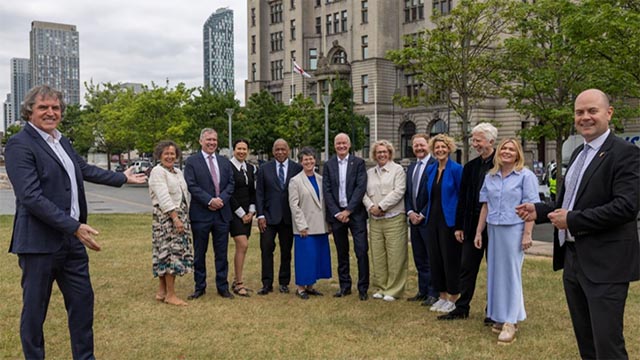Too cautious, too bland is a familiar accusation leveled at the REITs. It’s time, though, to stop treating them as a homogenous mass. While blandness hasn’t been eradicated quite yet, some are showing a taste for boldness.
Bland? Look at British Land’s interim management statement this week. “The business continues to perform well in markets which remain tough overall,” said chief executive Chris Grigg. “We are confident that British Land is not only defensive in today’s challenging markets but also well positioned.”
Confident? Try Great Portland Estates. “Conditions in London’s commercial property markets remain supportive,” said chief executive Toby Courtauld, also this week. “We maintain our confident outlook.”
For caution try Land Securities. “With our disciplined approach, we remain focused on our clear plan to invest in and develop the right space in the right place at the right time, utilising the strength of our balance sheet,” said chief executive Rob Noel last week.
For boldness, turn to a new kid on the block. Less than a week after completing the merger that created the business, Andrew Jones’ LondonMetric Property has completed its first acquisition – a £92.4m deal for the Saturn portfolio. It also set out plans to return £100m to shareholders to boot.
I’m being provocative. Don’t read too much into the different noises emerging from the different camps. The more youthful you are, the easier it is to appear bold. (And with Safestore seeking to convert to a REIT from 1 April, let’s hope there is more boldness in the offing).
Meanwhile, confidence comes easier when you are only exposed to the London market. But it does serve to highlight that the lazy shorthand of referring to “the REITs” as if they were of one mind should stop.
Last week it was the HMV heebie-jeebies, the latest Wobble of the Week came via Qatar Diar. The property arm of the fabulously wealthy Qatari sovereign wealth fund said of its £3bn Chelsea Barracks scheme that it was “taking advantage of the opportunity to review and respond to the context of the prevailing economic environment in preparing for the next stage of the development”.
A mini media furore ensued. The interpretation was that a major investor was asking fundamental questions that would soon be asked by others: “Did we pay too much? Is the London luxury property market coming off the boil? Are we over-exposed in what stubbornly remains a fragile market? And, hang on, what does this referendum thingy mean for currency risk?”
This interpretation was an overreaction, confirmed by a straw poll of London investment types in the wake of the news. The £16bn invested in central London last year was the second highest on record, and its fundamentals are no less attractive today. Meanwhile, volumes available through global capital markets are going north, not south.
Talk of repricing in central London is of prime yields coming in, not out. As well international and domestic investor interest, corporate occupiers with significant cash reserves are looking to own properties. ITV became the latest occupier to turn owner, with its £56m purchase of London Television Centre this week.
That’s not to say London property is a one-way bet for international investors. Currency stability and maintaining the UK’s triple-A rating is essential. But there’s no need to push the panic button just yet.
New year, new chief executive, new JLL. Guy Grainger unveils his agenda this week, telling EG that to ensure future success the firm must listen to the next generation and deliver technology-led solutions, the like of which the advisory industry has never seen before.
Expect Grainger to move quickly, recruiting in key areas, creating new teams and shuffling his pack. He wants to send signals internally and externally: and there would be none more powerful than a move from Mayfair, which may just be on the cards.











